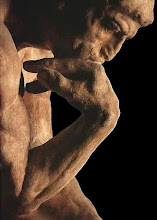Below is a great article that I have read today, reminding all Christians on the need to remember and make sense of the past, and its relationship to the present. We are all people with a past - we are who we are, due to the events and experience that took place in the past. Strangely, this importance was never talked about in the previous church I was in. As a result, we miss certain deep truths of life and our understanding of our faith in God when we failed to comtemplate make sense of the past happenings, be it in church ministry, work or our personal lives. To those who only have time to serve God but never anytime to reflect, this article is directed towards you.
People With a Past
by Jill Carattini, managing editor of A Slice of Infinity at Ravi Zacharias International Ministries in Atlanta, Georgia
I confess that I have never been a student especially enticed by the subject of history. Whether studying the history of the Peloponnesian War or the history of Jell-O, I associate the work with tedious memorization and an endless anthology of static dates and detail. But this stance toward history, coupled with our cultural obsession with the present moment, is a powerful force to be reckoned with and an outlook I have come to recognize as dangerous. It is a thought perhaps to take captive, lest it produce in me a sense of forgetfulness about who I am and from where I have come.
Richard Weaver is one among many who have warned about the dangers of presentism, the cultural fixation with the current moment and snobbery toward the past. More than fifty years ago, Weaver warned of the discombobulating effects of living with an appetite for the present alone:
"Recurring to Plato's observation that a philosopher must have a good memory, let us inquire whether the continuous dissemination, of news by the media under discussion does not produce the provincial in time. The constant stream of sensation, eulogized as lively propagation of what the public wants to hear, discourages the pulling-together of events from past time into a whole for contemplation."(1)
Weaver contends that carelessness about history is in fact a type of amnesia, producing a mindset that is both aimless and confused. For how can we understand the current cultural moment without at least some understanding of the moments that have preceded it? History is not a static bundle of dates and details anymore than our own lives are static bundles of the same. But instead, history is the vital form in which we both take account of our past and fathom the present before us.
This point was driven home for me in a church history class full of future pastors. We were studying the fourth century, which was privy to a great influx of believers who left their communities behind and fled to the desert in search of solitude. To a group of people called and passionate about the church as a community, the great lengths some of these pilgrims went to live solitary lives was hard to understand. Words like "abandonment" and "responsibility" readily crept into our conversations.
But imperative to understanding this flight of believers (and arguably to understanding a part of our own story) is recognizing that this history did not come to pass in a vacuum. Up until the fourth century, the church had been under fierce persecution. Torture and martyrdom were prevalent; believers were recurrently in danger and often met in secrecy. When Christianity was suddenly made legal in 313, the church found itself in the midst of an entirely different set of challenges. People were now coming to Christianity in droves, and for the first time in the life of the church, nominal belief and careless faith was a reality. In this historical context, pursuit of the desert life was an expression of faith in response to faithless times. For the dynamically committed Christian, the desert was viewed as a way to not only secure and live out one's convictions, but to preserve the faith itself.
We may not understand the motives of those who chose to live their lives in caves of prayer and solitude, but I believe it is quite possible that God continues to set apart remnants who stand in the midst of time "like dew from the Lord, like showers on the grass, which do not depend upon people or wait for any mortal" (Micah 5:7). Refusing to be historians, we miss truths such as these. We are people with a past that locates us in the very story we live today.
For the Christian, history is all the more a sense of hallowed ground, for it is ground where God has walked and faith is kept. We believe that history resides in the able hands of the one who made us to live within time. We believe that who we are today has everything to do with events we have not seen ourselves. And we live as a people called both to remember and to be ready, for we look to the author of the entire story, who was and is and is to come.
(1) Richard M. Weaver, Ideas Have Consequences (Chicago: University of Chicago Press, 1984), 111.
Subscribe to:
Post Comments (Atom)

No comments:
Post a Comment